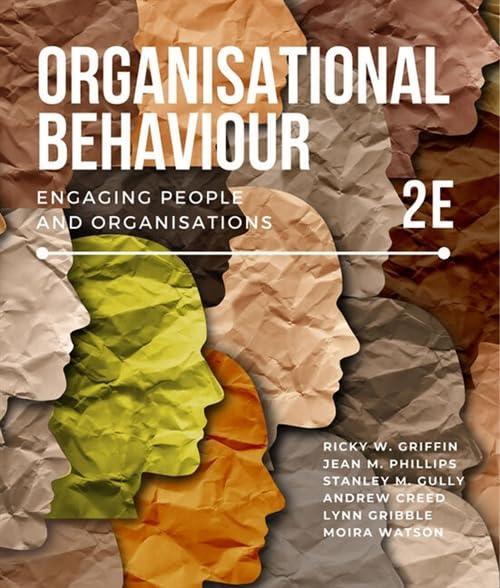It seems simple to prescribe a structural approach to organisational activities. It has been fashionable, for instance,
Question:
It seems simple to prescribe a structural approach to organisational activities. It has been fashionable, for instance, to say that mechanistic structures with hierarchies built in are out of date and not relevant for today’s fast-paced environment. However, what if you are working in an organisation that is trying to achieve objectives that are heavily process driven and may have safety or regulatory aspects to their outputs? Biotechnology and pharmaceuticals spring to mind. There are numerous health and safety aspects to developing drugs for human consumption. Obviously, there is a need for rapid innovation, and the idea of having flat, organic hierarchies with workers being able to autonomously generate new ideas without bureaucratic hurdles is compelling. For example, getting new virus or cancer-killing drugs to market more quickly is seen as necessary. Well, that would be fine if those drugs are guaranteed to not cause side effects or even contribute to fatalities.
It is for critical issues like these that mechanistic hierarchies with all their checks and balances and processdriven guidelines can come into their own.
Question
Imagine you are the manager of a company developing a drug that is showing early signs that it can cure a dreadful disease, but you are structurally bound by the need for policy and procedure with commercialising that drug for human consumption. Would you favour fast, flat communication and rapid movement of product to market through a flat, organic structure, or would you trust that process and policy driven by hierarchical and mechanistic checks and balances will deliver the safest, albeit slower, outcomes?
Step by Step Answer:

Organisational Behaviour Engaging People And Organisations
ISBN: 272389
2nd Edition
Authors: Ricky W. Griffin, Jean M. Phillips, Stanley M. Gully, Andrew Creed, Lynn Gribble, Moira Watson





